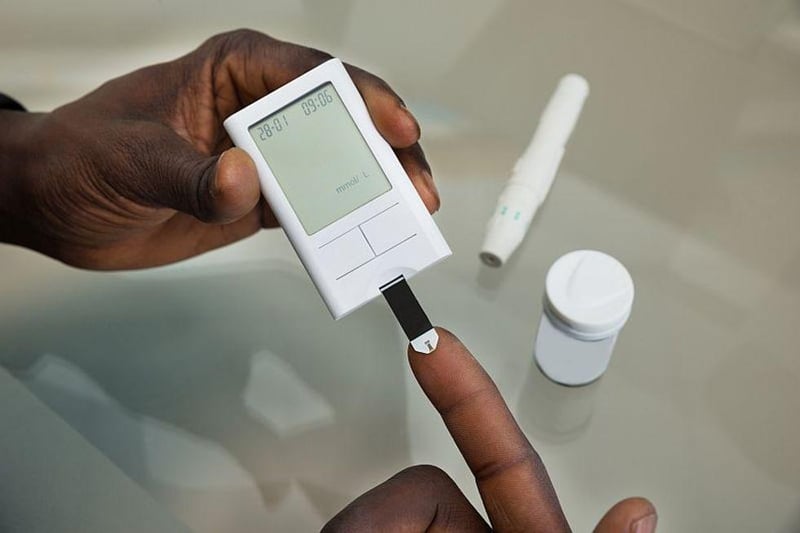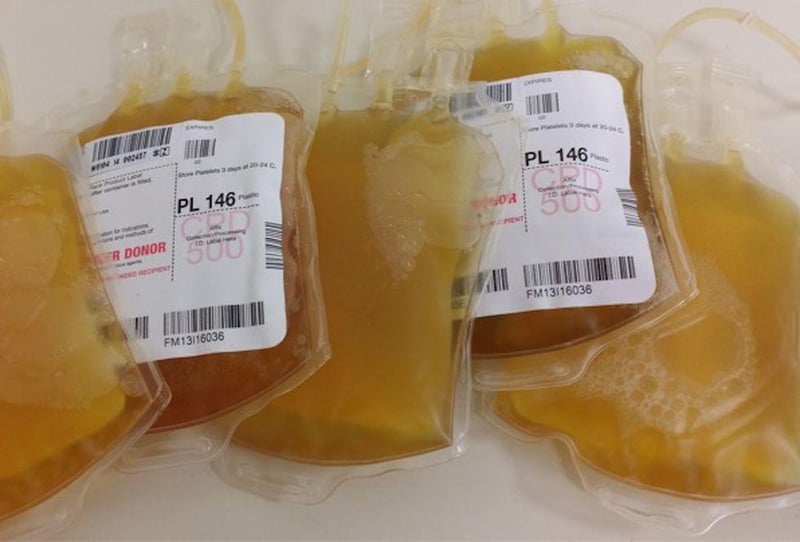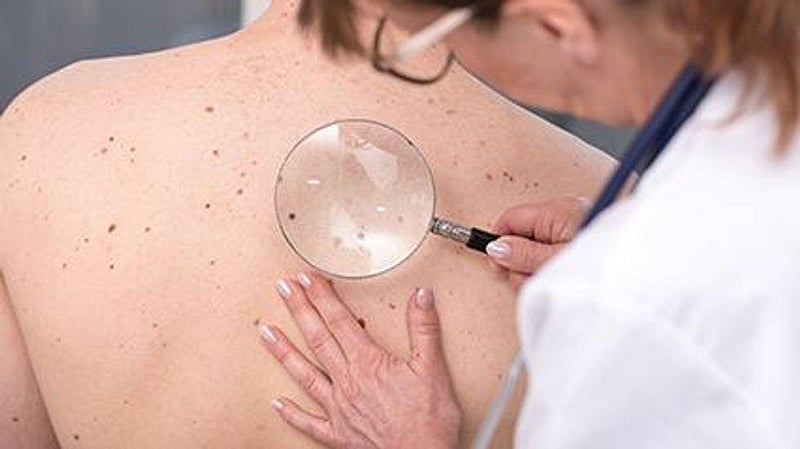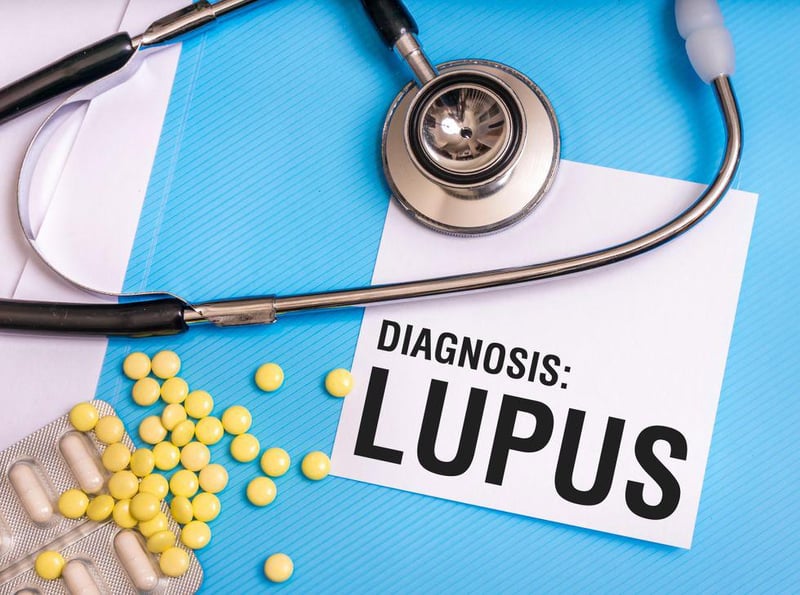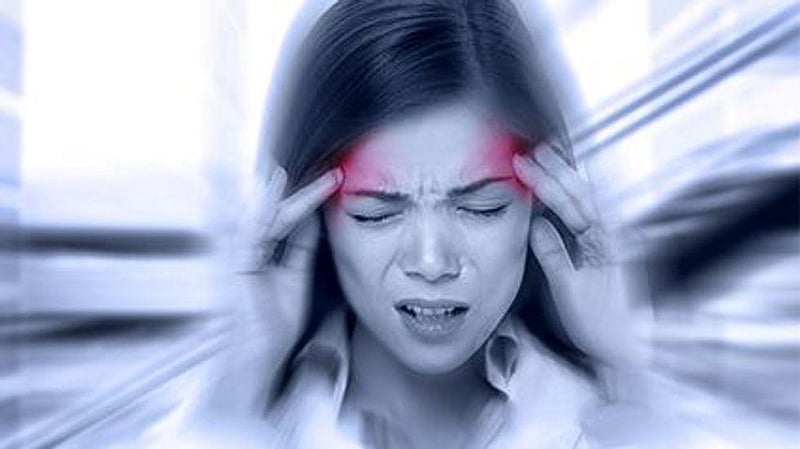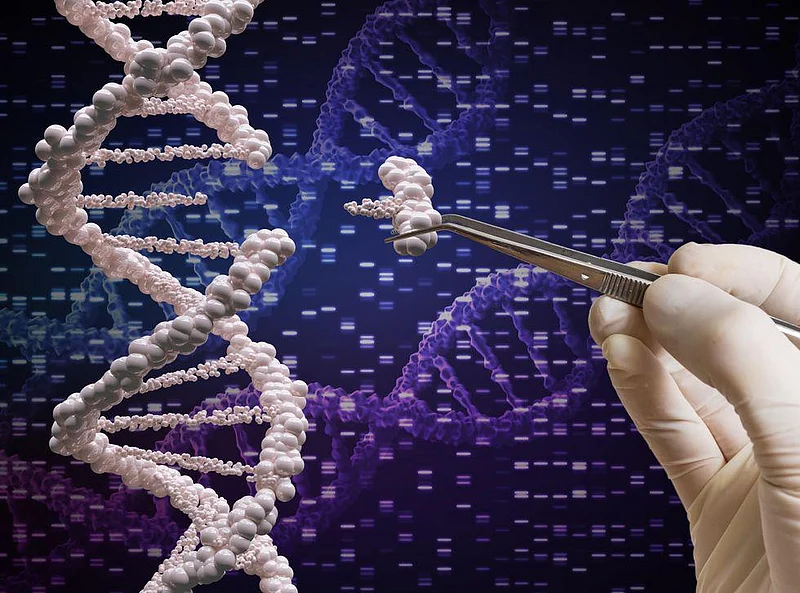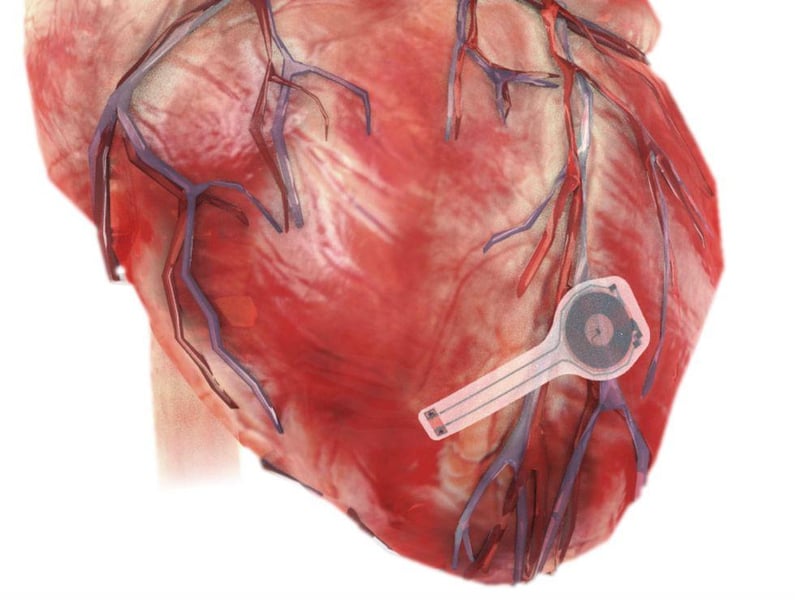Get Healthy!
471 Results for search "Research &, Development".
Health News Results - 471
A drug previously approved for multiple sclerosis also can treat inflammatory bowel disease in some patients, a new clinical trial reports.
The medication, ozanimod (Zeposia), proved effective in helping patients with ulcerative colitis, sending many into full remission, according to results being published Sept. 30 in the New England Journal of Medicine.
Ulcerative colitis...
- |
- September 29, 2021
- |
- Full Page
A pair of experimental tests could help doctors detect colon or prostate cancer with just a sample of blood or saliva.
One test examines a person's blood for four biomarkers linked to inflammation. In a small study, it outperformed the fecal blood test now used in colon cancer screening, said lead researcher Dr. Mona Eldeeb, of Alexandria University Medical Research Institute in Egypt.
- Dennis Thompson HealthDay Reporter
- |
- September 29, 2021
- |
- Full Page
Spend time with babies and you'll see they pick up items, bang them together and, often, chew on them.
That play is key to learning and development, but most research on infant play has taken place in a lab and not on a living room floor -- until now.
"At a time in development when infants must acquire information about what objects are and what they can do with them, massive amount...
- Cara Murez
- |
- September 29, 2021
- |
- Full Page
A drug widely used to treat osteoporosis might reduce the risk of type 2 diabetes, a new study suggests.
Taking the drug alendronate (Fosamax) for at least eight years could potentially reduce a person's risk of type 2 diabetes by more than half, compared to people never prescribed the drug, according to findings presented Sunday at the annual meeting of the European Association for the S...
- Dennis Thompson HealthDay Reporter
- |
- September 28, 2021
- |
- Full Page
Nuclear war would trigger worldwide climate change and take a dire toll on food production and human health, according to scientists who studied different scenarios using a modern climate model.
"Although we suspected that ozone would be destroyed after nuclear war and that would result in enhanced ultraviolet light at the Earth's surface, if there was too much smoke, it would block out t...
- Cara Murez
- |
- September 27, 2021
- |
- Full Page
A saltwater solution may help stop the SARS-CoV-2 virus in its tracks, Brazilian researchers report.
However, although saline may keep the virus from replicating, it does not offer full protection against infection or a cure for COVID-19.
"It's not a single solution, and it would have to be used in the first few days after infection," said researcher Cristiane Guzzo, a professor of ...
- Steven Reinberg
- |
- September 24, 2021
- |
- Full Page
There's good news for health-conscious sausage and bacon lovers.
A new study suggests the Japanese knotweed plant could be used to make healthier cured meats.
According to researchers, this fast-growing plant that invades gardens and buildings contains a chemical that could take the place of the preservative nitrite, which has been linked to cancer, in cured meats. That might not on...
- Steven Reinberg
- |
- September 24, 2021
- |
- Full Page
A new DNA sensor can detect viruses and tell if they are infectious or not in minutes, a new study finds.
The sensor was developed by using DNA technology, and does not require the need to pretreat test samples. Researchers demonstrated this technique with the human adenovirus (which causes colds and flu) and the virus that causes COVID-19.
"The infectivity status is very important ...
- Steven Reinberg
- |
- September 24, 2021
- |
- Full Page
The future of COVID-19 treatments might include a tiny antibody made by llamas.
British researchers credit a llama named Fifi with their finding.
The investigators said these llama nanobodies, which are also produced by camels, could eventually be produced in a lab and administered by a nasal spray, binding tightly to the COVID-19 virus and neutralizing it.
The potential solut...
- Cara Murez
- |
- September 23, 2021
- |
- Full Page
Movement can be very difficult for people with Parkinson's disease, as shaking and stiffness play havoc with balance, coordination and gait.
There are many different tricks Parkinson's patients can use to improve their walking and avoid injury from a bad tumble -- but a new study reveals that people often have to figure them out on their own, with no help from either a doctor or physical ...
- Dennis Thompson HealthDay Reporter
- |
- September 16, 2021
- |
- Full Page
The "white cane" that many blind people rely on for navigating the world hasn't been upgraded in a century, but researchers are reporting progress on a "robo-cane" they hope will modernize the assistive device.
The prototype cane is equipped with a color 3D camera, sensors and an "on-board" computer designed to guide the user to a desired location -- and avoid any obstacles along...
- Amy Norton HealthDay Reporter
- |
- September 16, 2021
- |
- Full Page
The heart rates of people sync up when listening to a story, a new study finds.
"There's a lot of literature demonstrating that people synchronize their physiology with each other. But the premise is that somehow you're interacting and physically present [in] the same place," said co-author Lucas Parra, a professor of biomedical engineering at City College of New York.
"What we have...
- Steven Reinberg
- |
- September 15, 2021
- |
- Full Page
TUESDAY, Sept. 14, 2021 (HealthDay News) -- New data out of Israel, to be published this week, could bolster the notion that a third booster shot of the COVID-19 vaccine significantly lowers a recipient's odds for severe illness.
The data is scheduled to be published in the peer-reviewed New England Journal of Medicine, ahead of this week's U.S. Food and Drug Administration advi...
- Cara Murez
- |
- September 14, 2021
- |
- Full Page
Many people with asthma know their illness can flare up at night, and new research suggests the body's internal clock could be to blame.
The findings could prove important for treating and studying asthma, the researchers said.
"This is one of the first studies to carefully isolate the influence of the circadian system from the other factors that are behavioral and environmental, in...
- Robert Preidt
- |
- September 8, 2021
- |
- Full Page
A first-of-a-kind nerve stimulation treatment for people who have problems moving their arms after a stroke has been approved by the U.S. Food and Drug Administration.
"People who have lost mobility in their hands and arms due to ischemic stroke are often limited in their treatment options for regaining motor function," explained Dr. Christopher Loftus. He is acting director of the FDA's ...
- Robert Preidt and Ernie Mundell
- |
- August 27, 2021
- |
- Full Page
Early treatment with COVID-19 survivors' blood plasma doesn't prevent disease progression in people who have mild COVID-19 symptoms but are at risk for more severe illness, a new clinical trial finds.
"As physicians, we wanted this to make a big difference in reducing severe illness and it did not," said principal investigator Dr. Clifton Callaway, professor of emergency medicine at the U...
- Robert Preidt
- |
- August 20, 2021
- |
- Full Page
Antibodies generated by COVID-19 vaccines are effective against the Delta variant and other coronavirus variants of concern, new research shows.
The findings may help explain why most vaccinated people have avoided the surge of Delta variant cases sweeping across the United States.
"In face of...
- Robert Preidt
- |
- August 19, 2021
- |
- Full Page
A new pill specifically designed to prevent migraines appears to do the job, a new clinical trial finds.
Atogepant cut patients' migraine days in half over 12 weeks of treatment, without causing serious side effects, the researchers said.
Experts said the drug, if approved by the U.S. Food and Drug Administration, would give migraine sufferers a welcome new option.
"There's a ...
- Amy Norton HealthDay Reporter
- |
- August 19, 2021
- |
- Full Page
There's strong evidence that the steroid drug dexamethasone can significantly lower hospitalized patients' risk of dying from COVID-19, but many who might benefit from it the most aren't getting it.
"Dexamethasone is a steroid that is used for the treatment of arthritis, inflammation and allergic reactions," explained Hemalkumar Mehta, who studied its use in treating COVID-19 patients. He...
- Alan Mozes HealthDay Reporter
- |
- August 17, 2021
- |
- Full Page
Twenty seconds.
That's how long you need to wash your hands to remove germs, a new physics study confirms.
Typical hand-washing guidelines -- including those from the U.S. Centers for Disease Control and Prevention -- advise scrubbing your hands for a minimum of 20 seconds.
To assess that recommendation, researchers used a mathematical model to examine the key mechanics of han...
- |
- August 17, 2021
- |
- Full Page
When the antiretroviral regimen known as pre-exposure prophylaxis, or PrEP, was launched nearly a decade ago, patients were suddenly able to achieve near-complete protection against contracting HIV by taking just one pill a day.
But there's a big hitch: Not everyone is equally diligent about sticking to that once-a-day daily pill regimen, and when doses are missed PrEP's protective shield...
- Alan Mozes HealthDay Reporter
- |
- August 12, 2021
- |
- Full Page
Schizophrenia is a debilitating disease that can make navigating daily life a massive challenge, but a new blood test could flag it in its early stages, researchers say.
Their analysis of blood samples identified epigenetic markers -- part of your DNA -- that differ between people with schizophrenia and those without the mental health disorder.
The researchers developed a model to a...
- Robert Preidt
- |
- August 12, 2021
- |
- Full Page
Barnacles may be the bane of ships, but they could point to new ways to quickly halt severe bleeding, researchers report.
Barnacles are small crustaceans that attach to rocks, ship hulls and even other animals, such as whales. Their ability to cling to surfaces that are often wet and dirty caught the attention of researchers trying to find new ways to seal wounds in emergency situations.<...
- Robert Preidt
- |
- August 11, 2021
- |
- Full Page
An experimental gel has shown early promise in treating the most common form of skin cancer -- hinting at a potential alternative to surgery in the future.
Researchers tested the gel in 30 patients with basal cell carcinoma (BCC), a skin cancer diagnosed in more than 3 million Americans each year. The tumors rarely spread and are highly curable, usually through surgical removal.
Eve...
- Amy Norton HealthDay Reporter
- |
- August 9, 2021
- |
- Full Page
In a first, researchers have used genetically tweaked immune system cells to send a woman's severe lupus into remission.
The treatment -- called CAR T-cell therapy -- is already approved in the United States for fighting certain cases of blood cancer. It involves removing a patient's own immune system T-cells, genetically altering them to target the cancer, then infusing them back into th...
- Amy Norton HealthDay Reporter
- |
- August 5, 2021
- |
- Full Page
Could a drug used to treat amyotrophic lateral sclerosis (ALS) help people with mild Alzheimer's disease?
The results of a small new study suggest the strategy could work.
Riluzole has been used for more than 20 years to slow the progression of ALS, commonly called Lou Gehrig's disease. This phase 2 study found that the drug slowed brain metabolic decline and had a positive effect o...
- Robert Preidt
- |
- August 2, 2021
- |
- Full Page
Dogs may be man's best friend, but cats may hold critical keys to humans' health.
Our feline friends have the potential to become a valuable model for genetic research, because their genome is similar to that of people, according to Leslie Lyons of the Feline Genetics Laboratory at the University of Missouri in Columbia.
"Using cats in research is really overlooked, since people don...
- Cara Murez
- |
- July 29, 2021
- |
- Full Page
Trusting science is good, but it could put you at risk for being duped by false science, or "pseudoscience," if you let your guard down, researchers warn.
Investigators found that people who trust science are more likely to believe and share false claims that contain scientific references than those who don't trust science.
"We conclude that trust in science, although desirable in m...
- Robert Preidt
- |
- July 28, 2021
- |
- Full Page
While efforts to develop Alzheimer's medications have so far borne little fruit, new research highlights the therapeutic promise of two non-drug tools: light and sound.
According to a pair of small new studies, exposing Alzheimer's patients to an hour a day of carefully modulated light and/or sound appears, over time, to slow down the telltale brain degeneration that typifies disease prog...
- Alan Mozes HealthDay Reporter
- |
- July 27, 2021
- |
- Full Page
Children with autism differ socially and developmentally from their typically developing peers. Now, researchers say there are also differences in their array of healthy gut bacteria or "microbiome."
The findings may lead to earlier treatment for kids with an autism spectrum disorder, suggested the authors of a new small study.
The gut microbiome can vary according to where people l...
- Robert Preidt
- |
- July 27, 2021
- |
- Full Page
A drug that eases hallucinations in people with Parkinson's disease may be able to do the same for those with dementia, a new clinical trial finds.
The medication, called Nuplazid (pimavanserin), is already approved in the United States for treating hallucinations and delusions related to Parkinson's.
The new study, published July 22 in the New England Journal of Medicine, ...
- Amy Norton HealthDay Reporter
- |
- July 23, 2021
- |
- Full Page
A Chinese researcher has died after catching a rare infectious disease called the Monkey B virus, Chinese Center for Disease Control and Prevention officials say.
In March, the 53-year-old veterinarian dissected two dead monkeys as part of his work in a Beijing research institute specializing in nonhuman primate breeding. He developed nausea, vomiting and fever a month later, and died May...
- Robert Preidt
- |
- July 19, 2021
- |
- Full Page
The causes of a type of excruciating headache known as cluster headaches aren't clear, but heredity is known to play a role. Now, genetic factors associated with cluster headaches are under investigation as scientists search for more effective treatments.
Researchers at the Karolinska Institute in Sweden analyzed blood samples from more than 600 people with cluster headaches. They li...
- Robert Preidt
- |
- July 19, 2021
- |
- Full Page
Glaucoma is a leading cause of vision loss in older people, and early detection can bring better treatment. Now, researchers in Australia say their experimental genetic test for glaucoma can identify 15 times more people at high risk for the disease compared to a current genetic test.
"Early diagnosis of glaucoma can lead to vision-saving treatment, and genetic information can potentiall...
- Ernie Mundell and Robert Preidt
- |
- July 16, 2021
- |
- Full Page
Researchers have developed an implant that allowed a man with severe paralysis to "speak" again by translating his brain signals into text.
The achievement is the latest step in "brain-computer interface" (BCI) research.
Scientists have been studying BCI technology for years, with the aim of one day giving people with paralysis or limb amputations greater independence in their daily...
- Amy Norton HealthDay Reporter
- |
- July 15, 2021
- |
- Full Page
Breathing in protection: Scientists say an experimental inhaled COVID-19 vaccine shows promise in animal tests.
"The currently available vaccines against COVID-19 are very successful, but the majority of the world's population is still unvaccinated and there is a critical need for more vaccines that are easy to use and effective at stopping disease and transmission," said study co-leader ...
- Robert Preidt
- |
- July 13, 2021
- |
- Full Page
Why do some people infected with SARS-CoV-2 have either no or negligible symptoms, while others sicken and die?
Scientists who've pinpointed several genetic markers associated with severe COVID-19 say their findings could provide answers to that important question -- and targets for future treatments.
The investigators spotted 13 locations in human DNA that are strongly associated w...
- Robert Preidt
- |
- July 9, 2021
- |
- Full Page
Researchers have identified specific brain circuitry that is related to people's sense of spirituality -- and it's centered in a brain region linked to pain inhibition, altruism and unconditional love.
The findings add to research seeking to understand the biological basis for human spirituality.
"It is something of a treacherous subject to navigate," said lead researcher Michael Fe...
- Amy Norton HealthDay Reporter
- |
- July 8, 2021
- |
- Full Page
An experimental drug can prevent intestinal damage caused by celiac disease, an early trial has found -- raising hopes that it could become the first medication for the serious digestive disorder.
With celiac disease, the immune system attacks the lining of the small intestine when a genetically susceptible person eats gluten -- a protein found in wheat, rye and barley.
The symptoms...
- Amy Norton HealthDay Reporter
- |
- July 1, 2021
- |
- Full Page
You have type 2 diabetes, and you are already taking an old standby drug, metformin. But you still need help controlling your blood sugar levels. Which medication would be the best?
New research pitted several diabetes drugs against each other and came up with an answer: The diabetes drugs Lantus and Victoza were better at controlling blood sugar over time than Amaryl or Januvia.
"W...
- Steven Reinberg HealthDay Reporter
- |
- June 29, 2021
- |
- Full Page
Early research suggests that CRISPR gene-editing technology may some day lead to dramatic relief for patients struggling with amyloidosis, a rare but serious disease that can trigger organ failure.
"There are many different types of amyloidosis," explained study author Dr. Julian Gillmore, a researcher in medicine with the Centre for Amyloidosis and Acute Phase Proteins at University Coll...
- Alan Mozes HealthDay Reporter
- |
- June 29, 2021
- |
- Full Page
Researchers are reporting early success with a temporary heart pacemaker that simply dissolves when it's no longer needed.
So far the work has been limited to animals and human heart tissue studied in the lab. But experts said the early findings are "exciting" and could eventually change the care of patients who need a pacemaker for only days to weeks.
Pacemakers are devices that ar...
- Amy Norton HealthDay Reporter
- |
- June 28, 2021
- |
- Full Page
Could trees be the key to a cool summer in the city?
Yes, claims new research that calculated just how much greenery can bring temperatures down.
"We've long known that the shade of trees and buildings can provide cooling," said study co-author Jean-Michel Guldmann. He is a professor emeritus of city and regional planning at Ohio State University, in Columbus.
"But now we can...
- Robert Preidt
- |
- June 28, 2021
- |
- Full Page
FRIDAY, June 25, 2021 (Healthday News) -- Fresh on the heels of the U.S. Food and Drug Administration's approval of the controversial Alzheimer's drug Aduhelm, the maker of a second medicine that works in similar fashion said Thursday it hopes to apply for approval of its medication later this year.
Eli Lilly said findings from a mid-stage clinical trial of 272 patients with early Alzheim...
- Robin Foster and Robert Preidt
- |
- June 25, 2021
- |
- Full Page
The first case of COVID-19 may have occurred in China weeks earlier than previously thought, a new study claims.
The first officially identified case occurred in early December 2019, but increasing evidence suggests the original case may have emerged earlier.
In this study, British researchers conducted a new analysis and concluded that the first case of COVID-19 arose between early...
- Robert Preidt
- |
- June 25, 2021
- |
- Full Page
Pollen is tough enough for allergy sufferers, but a new study suggests it also helps spread the new coronavirus and other airborne germs.
Researchers had noticed a connection between COVID-19 infection rates and pollen concentrations on the National Allergy Map of the United States.
That led them to create a computer model of all the pollen-producing parts of a willow tree. They the...
- Robert Preidt
- |
- June 23, 2021
- |
- Full Page
It's been more than six months since Brandy Compton last landed in a hospital emergency room.
That's an amazing medical achievement, brought about by scientific breakthroughs that have been unfortunately overshadowed by the coronavirus pandemic, experts say.
Compton, 31, was born with sickle cell disease, a genetic condition that primarily affects people of African descent.
T...
- Dennis Thompson HealthDay Reporter
- |
- June 18, 2021
- |
- Full Page
Aiming to deliver a one-two punch to the herpes virus, animal research on an experimental drug found it tackled active infections and reduced or eliminated the risk of future outbreaks.
Existing treatments, such as Zovirax, Valtrex or Famvir, are only effective at the first task; they can help treat cold sores and genital eruptions once a herpes outbreak occurs. But the new ...
- Alan Mozes HealthDay Reporter
- |
- June 17, 2021
- |
- Full Page
The vast majority of editors at leading medical journals are white - with few of those influential spots going to Black or Hispanic professionals, a new study finds.
The study comes on the heels of a controversy that prompted the resignation of the editor-in-chief of the Journal of the American Medical Association.
It all started in February when Dr. Ed Livingston, a JA...
- Amy Norton HealthDay Reporter
- |
- June 14, 2021
- |
- Full Page
Researchers are using mice to study a potential new treatment that could help patients who have sickle cell disease, without some of the risks and side effects of existing therapies.
The investigators reported using genetic-based editing on mice to convert a disease-causing hemoglobin gene to a benign variant that would enable healthy blood cell production.
Sickle cell disease (SCD...
- Cara Murez
- |
- June 10, 2021
- |
- Full Page




